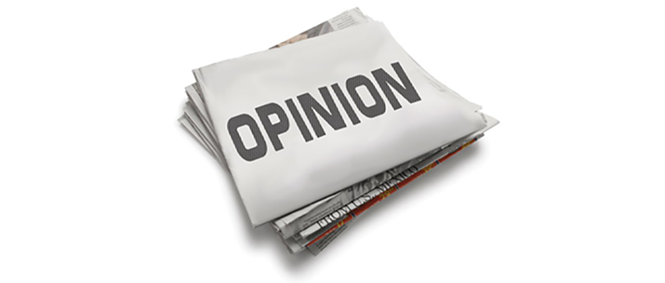
Have you looked lately? Chances are, your pants are on fire.
I've told a lie. You've told a lie. And lots of people have lied about not lying. Maybe little George Washington couldn't tell one, but even that charming story—so often repeated to school-aged children—is likely untrue. So, who cut down the cherry tree?
After the Trump presidency and the tragic jokes about his compulsive, pathological inability to tell the truth—even when lies served no purpose—it might be a good time for Americans to ask themselves why Trump's thousands of lies were so easily pardoned by so many of his followers. Even worse, how could so many Americans have embraced the "mother of them all?" The "Big Lie" is still front-and-center, despite the fact that recounts and courts have all verified Biden's win.
The truth is that almost all people lie. Politicians—it goes without saying—can't give it to us straight. Presidents, governors, mayors and legislators fudge constantly. Salesmen stretch claims on vacuums and cars. Corporations misrepresent things. Purple-pillow-makers make false claims and some Boy Scouts lie about how many good turns they did that day.
My guess is that when we view and review our own lives, there's literally no one who can say they've been flawlessly honest, and the reality is that there are many rationalizations on why it's OK to bend the truth. Sociologists and psychiatrists have maintained that most lying isn't necessarily a bad thing, and that, by the time a child is 7, he's made dishonesty an essential part of his personal armament. That could certainly be a reason why some people are more inclined to give even DJT a free pass for his seamless fabrications.
When I was a kid, my mother often told me to make sure I faithfully brushed my teeth after every meal. "Look at your Grandma Olga," she'd say, "she still has all of her own teeth." That was very motivating. I knew that a great smile was priceless, so I became an almost-obsessive tooth-brusher. Even as a 40-, and then a 50-year-old businessman, I carried a toothbrush in my suit pocket. Anytime I ate anything at all, I brushed my ivories—sometimes politely excusing myself, for just a moment, from a business meeting and ducking into the nearest bathroom. Today I still have all my natural teeth, and I attribute my dental success to Grandma Olga's fine example.
I don't remember exactly how I found out, but eventually the truth was disclosed. It turned out that Grandma Olga had a complete set of upper and lower dentures—something very common for her generation. I had to face it: My own mother—whom I viewed as a veritable bastion of integrity—had lied. When confronted with her little fiction, she simply acknowledged it: "Well, I wanted you kids to have good teeth. It's not just a matter of looks—it's a matter of good health." Her frank admission led me to the realization that lies, while considered a serious sin, may have a legitimate place.
Many falsehoods arise from parents who are anxious to protect their children, or to hide their own embarrassments. "You know, dear, we certainly had those same temptations, but we waited until we were married." Lying is about hiding one's own acts from others, or, sometimes, to obscure the truth in order to control tender minds.
Some lies are employed as a kindness or to prevent the embarrassment of another. What do you say when old Aunt Rody asks, "Are you enjoying your dinner?" And, instead of answering honestly, most people will lie in response to the courtesy, "How are you?" Even if it's a miserable day, you always say, "Fine, thank you." And, of course, there's the old standard for the kids: "Fido is very happy with his lovely new family in Jersey."
Obviously, there are some lies from which there is no redemption. Bearing false witness is an absolute no-no. There's no excuse for it, and lying to oneself is a very dangerous kind of deception.
Let's face it, the lies of parents are myriad, and there are probably a dozen of them that are so standard every child has heard them—Santa Claus; the Tooth Fairy; how eating watermelon seeds runs a risk of having one sprout inside you; and the various fibs, to children, about where babies come from. Those seem pretty harmless, but, at the same time, even the harmless ones are an invitation for children to learn to do the same. It's no wonder that most people tell at least a few lies. So, why do humans lie?
The most obvious reason for misrepresenting and twisting the truth is our own need for protection from ridicule and consequence. Whether it's a punishment meted out by parents for some trivial misstep of childhood or the more serious incarceration and punishment imposed for serious crimes by the justice system, we all try to avoid the pain that comes from being discovered and held accountable.
Just a note, here: Educators often find themselves in a precarious position, having to deal with the inevitable truths of who we are as a country, and as a people. Like the kids of today, who hear only the whitewashed versions of the stains of our history, tomorrow's classrooms will undoubtedly rehearse how it was Iraq's WMDs that provoked America's military operations there—parroting the lies that comprise our history rather than teaching the truth.
And when we compel our educators to avoid or mischaracterize Critical Race Theory, or extol how harmony and cooperation abounded between Native Americans and our Pilgrim ancestors, the tradition of American dishonesty will surely continue. It's our choice.
The author is a retired businessman, novelist, columnist, and former Vietnam-era Army assistant public information officer. He resides in Riverton with his wife, Carol, and the beloved ashes of their mongrel dog.